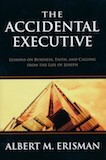In Love
Daily Reflection / Produced by The High Calling
For he chose us in him before the creation of the world to be holy and blameless in his sight. In love he predestined us for adoption to sonship through Jesus Christ, in accordance with his pleasure and will.
Ephesians 1:4-5
When the Apostle Paul wrote the letter we know as Ephesians, he did not divide it up into numbered chapters and verses. In fact, for over a thousand years, the New Testament was not identified this way at all. In the thirteenth century, Stephen Langton, the Archbishop of Canterbury, divided the New Testament into chapters, much as we have it today. The verses came later, in the sixteenth century, by a French printer known as Robert Estienne (or Robertus Stephanus in Latin, as he is often identified). I continue to be impressed by the usefulness of Stephanus' versification, which demonstrates his deep understanding of Scripture.
Yet, every now and then, Stephanus may have missed the sense of the text. Ephesians 1:4-5 offers a salient example. In the passage printed above, I left in the verse numbers. Yet the punctuation of the NIV and the numbers don't match when it comes to the phrase "in love." Stephanus included this phrase in verse 4, modifying either "he chose us" or "holy and blameless." Yet the NIV understands "in love" in relationship to "he predestined" in verse 5. (The ESV and the CEB agree with the NIV here. The NLT, NRSV, KJV, and the Message concur with Stephanus.) If Stephanus is right, then Paul's point here is either that God chose us in love or that we are to be holy and blameless as an expression of our love for God. If the NIV is right, then Paul is claiming that God predestined us to be his children because of his love for us.
So which is it? Unfortunately, the Greek underlying verses 4 and 5 can be read in a variety of ways. Moreover, any of the options presented to us makes good theological sense. God did choose us because of his love for us. We are to live holy and blameless lives as a response to God's love for us and as an expression of our love for God. Moreover, God did predestine us to be his children because of his love for us.
Rather than choosing one of these options and taking several paragraphs to explain my preference, I want rather to underscore the ambiguity in this passage. It's hard to interpret, not only because of the uncertainty of Greek grammar, but also because love is so utterly central to everything God does and to everything we do in response to God. God chose and predestined us because of his love for us. We live as in response to God's love by loving him and others. We will live as holy people, blameless before God, only to the extent that we seek to love above all else.
It is sometimes said that love makes the world go 'round. Honestly, I'm inclined to believe that this is romantic, wishful thinking. But, in God's design, love should be that which makes the world go 'round. Love animates and pervades the grand narrative of God's activity in the world, and it should animate and pervade our lives as God's holy, beloved children.
QUESTIONS FOR FURTHER REFLECTION: As you read Ephesians 1:4-5, to what would you link the phrase "in love"? Why? How might your love for God be translated into blameless living?
PRAYER: Gracious God, thank you for the glorious ambiguity of this passage. Thank you for choosing us in love. Thank you for the opportunity we have to love you by living as holy, blameless people. Thank you for predestining us to be your children because of your great love for us. Amen.
Images sourced via Creative Commons.






